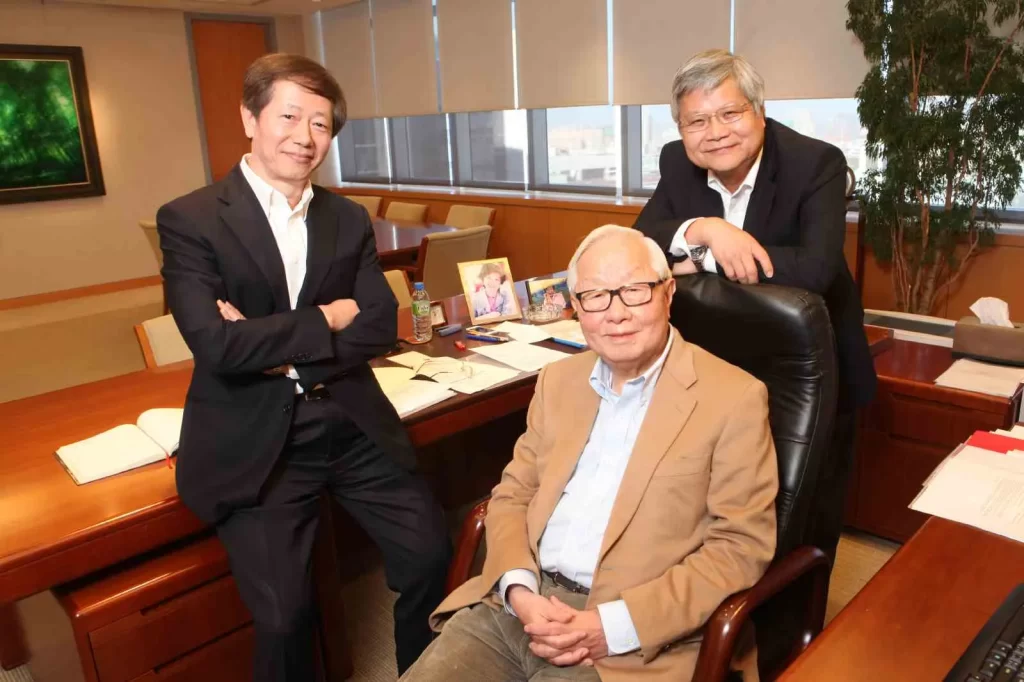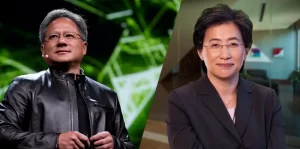Introduction
In the fast-paced world of technology, where youth is often heralded as a prerequisite for success, the story of Morris Chang serves as a powerful reminder that age is no barrier to innovation. Chang’s journey from his early years in wartime China to founding one of the most influential companies in the semiconductor industry, Taiwan Semiconductor Manufacturing Company (TSMC), is a testament to the enduring power of vision, determination, and resilience.

Read More: 4 Indian Stocks to Watch in Photonics Industry – techovedas
TSMC’s importance stems from its dominant role in the global semiconductor industry, which underpins countless modern technologies. Here’s a breakdown of why TSMC is critical:
Manufacturing Powerhouse:
Market Leader: TSMC is the world’s largest contract manufacturer of semiconductors, also known as integrated circuits or chips.
Cutting-Edge Technology: They consistently develop and implement the most advanced chip manufacturing processes, enabling the creation of powerful and efficient chips.
Widespread Impact: The chips TSMC produces are essential components in a vast array of devices, including smartphones, laptops, servers, cars, medical equipment, and even household appliances.
Shaping the Tech Landscape:
Innovation Catalyst: By providing a reliable source of advanced chip manufacturing, TSMC empowers other companies to innovate and develop new technologies.
Supply Chain Anchor: Their role as a major supplier creates a stable foundation for the global electronics industry.
Geopolitical Influence: Due to its crucial position in chip production, TSMC holds significant influence in the tech world and international trade.
The Early Years
Morris Chang was born in Ningbo, China, in 1931, during a tumultuous period marked by the Second Sino-Japanese War.
Despite the challenges of his upbringing, Chang displayed a remarkable aptitude for science and engineering from a young age.
His academic journey led him to the Massachusetts Institute of Technology (MIT) and later to Stanford University, where he earned a PhD in electrical engineering.

Read More: 15 Seconds is All it Takes: OpenAI’s Voice Engine Can Mimic Your Voice – techovedas
Rise Through the Ranks
After completing his studies, Chang embarked on a distinguished career in the semiconductor industry, joining Texas Instruments (TI), a leading player in the field.
A significant part of Chang’s pre-TSMC life involved working at Texas Instruments (TI) for 25 years. He started as an engineering manager in 1958 and steadily climbed the ranks, eventually becoming senior vice president responsible for the company’s global semiconductor business. This experience provided him with in-depth knowledge of chip manufacturing and the industry landscape.
Shifting Gears: In 1984, Chang left TI to become president of General Instrument Corporation. However, this stint was short-lived.
By the time Chang was recruited to Taiwan, he had nearly three decades of expertise in the semiconductor field, making him a valuable asset. His rise through the ranks at TI demonstrates his strong leadership and management abilities.
Overall, Morris Chang’s pre-TSMC years were crucial in shaping him into the industry leader who would revolutionize chip manufacturing.
Read More: Huawei to Release Tri-fold Smartphone by 2024 End – techovedas
The Spark of Innovation
Despite his success at TI, Chang harbored an entrepreneurial spirit and a desire to revolutionize the semiconductor industry. In 1987, at the age of 55, Chang made a bold decision to return to his native Taiwan and founded TSMC, with the vision of establishing a pure-play foundry model.

Here’s why Morris Chang decided to start a dedicated chip foundry like TSMC:
Industry Shift: At the time, in the 1970s and 80s, most semiconductor companies designed and manufactured their own chips. However, chip design and manufacturing were becoming increasingly complex and expensive. Chang saw an opportunity for a new business model.
Focus and Efficiency: By creating a foundry that solely focused on manufacturing chips designed by others, Chang believed companies could achieve greater efficiency. Foundries could invest heavily in cutting-edge manufacturing technology without the added burden of chip design, leading to more advanced chips at lower costs for designers.
Accessibility for Fabless Companies: The foundry model would also open doors for smaller companies without the resources to build their own fabs. These “fabless” companies could leverage TSMC’s expertise to produce their designs, fostering innovation across the industry.
Prior Experience: It’s worth noting that Chang actually proposed the foundry concept while working at Texas Instruments (TI) in the 1970s, but the company wasn’t on board. So, when the opportunity arose in Taiwan, he saw a chance to bring his vision to life.
In essence, Morris Chang saw a gap in the industry where a dedicated foundry could streamline chip production, making it more cost-effective and accessible for a wider range of companies. This innovative approach is what propelled TSMC to become a global leader in semiconductor manufacturing.
The Founding of TSMC
When TSMC was founded, many skeptics didn’t think a small, new foundry could compete with established giants.
However, Chang’s unwavering determination and strategic vision soon proved the naysayers wrong.
Under his leadership, TSMC pioneered the foundry model, focusing exclusively on manufacturing chips designed by other companies.
This innovative approach offered unparalleled efficiency, flexibility, and reduced risk for fabless chip designers.
A Legacy of Innovation
Today, TSMC stands as a global leader in semiconductor manufacturing, producing over half of the world’s semiconductors and powering a vast array of devices, from smartphones to artificial intelligence systems. Chang’s legacy looms large over the industry, serving as a testament to the transformative power of innovation and the enduring impact of visionary leadership.

TSMC places a high value on its customers, evident in several aspects of their business philosophy:
Customer Focus: Their core principle states, “Customer trust comes first. Their success is our success” . This highlights that TSMC prioritizes building strong, trusting relationships with its customers and views their success as intertwined with their own.
Partnership Approach: Rather than viewing customers as simply clients, TSMC sees them as partners. They have a long-standing policy of not competing with their customers. This fosters collaboration and ensures customer designs remain confidential.
Commitment to Customer Success: TSMC strives to deliver what their customers need. This might involve offering cutting-edge manufacturing technology, reliable production, and potentially even collaborating on chip design to optimize performance.
Long-Term Relationships: Building enduring relationships is a key aspect of TSMC’s customer focus. They understand the value of trust and stability in the semiconductor industry, where partnerships can span years or even decades.
By prioritizing customer needs and fostering trust, TSMC has established itself as a reliable partner for companies requiring advanced chip manufacturing.
Lessons Learned
Morris Chang’s story offers valuable lessons for aspiring entrepreneurs and innovators:
Age is just a number: Chang’s success with TSMC demonstrates that innovation knows no age limit. Regardless of one’s stage in life, passion, determination, and vision can drive remarkable achievements.
Identify market gaps: Chang’s ability to identify a critical need in the semiconductor industry – specialized foundries – and develop a solution underscores the importance of recognizing opportunities for innovation.
Embrace change: Chang’s willingness to challenge conventional wisdom and disrupt the status quo epitomizes the entrepreneurial spirit. In a rapidly evolving industry, adaptability and a willingness to embrace change are essential for success.
Follow us on Linkedin for everything around Semiconductors & AI
Conclusion
Morris Chang journey from humble beginnings to founding TSMC inspires us all. It proves that with vision, determination, and resilience, anything is possible. Regardless of age or circumstance, Chang’s story teaches us to push boundaries and innovate. Let’s draw inspiration from his legacy to shape a brighter future for generations to come.




